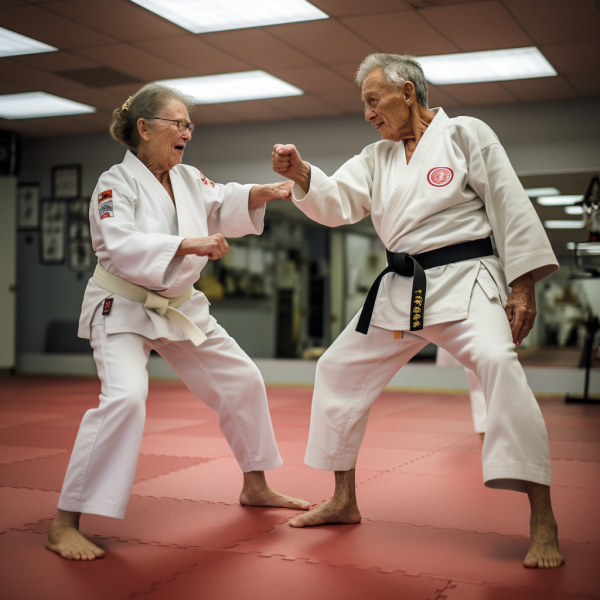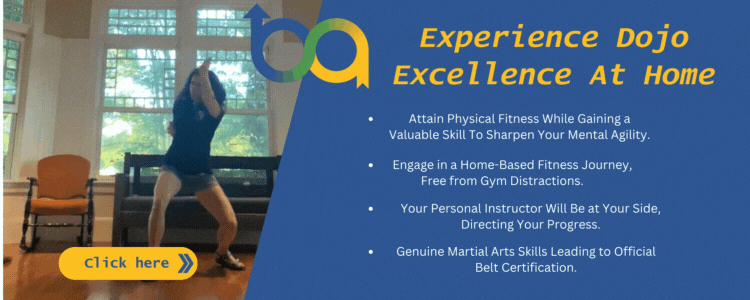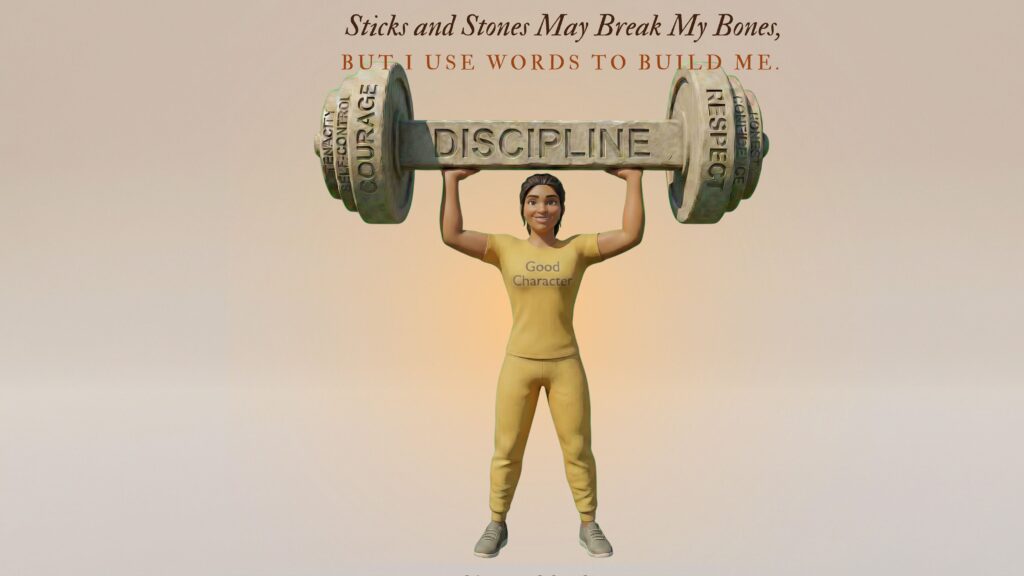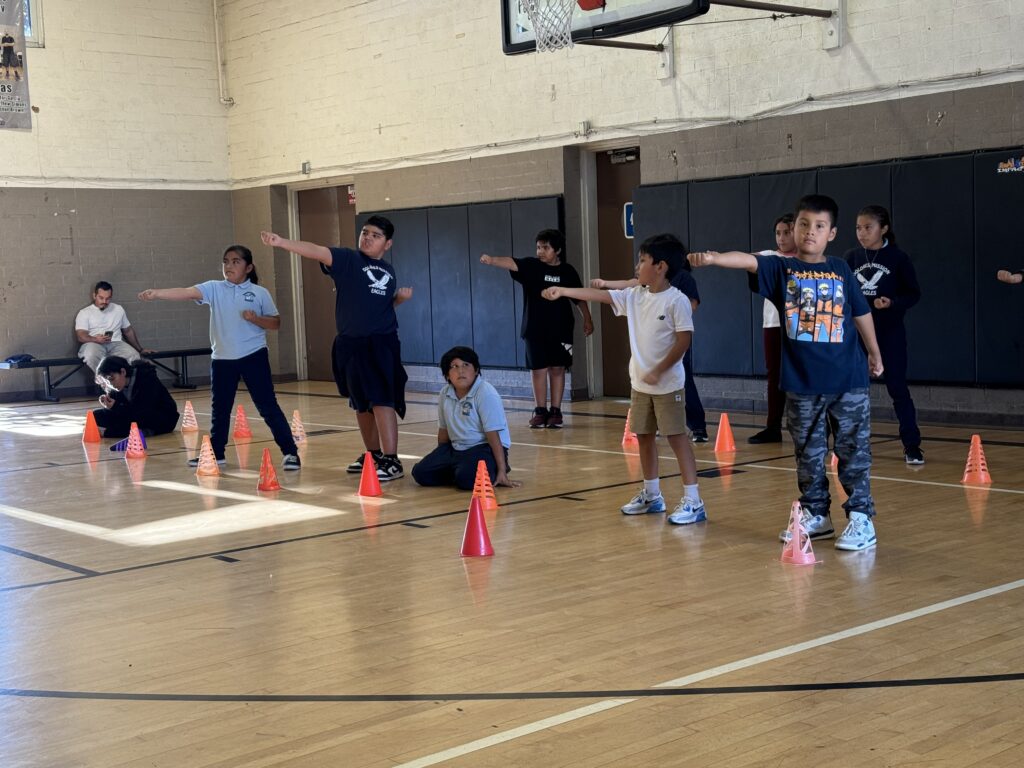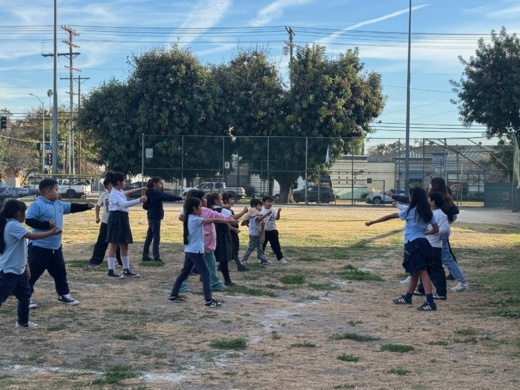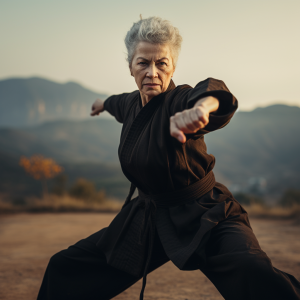 As we journey through the various stages of life, one thing remains constant: our desire to lead fulfilling and vibrant lives, regardless of age. While the years may bring wisdom and experience, they can also present challenges to our physical and mental well-being.
As we journey through the various stages of life, one thing remains constant: our desire to lead fulfilling and vibrant lives, regardless of age. While the years may bring wisdom and experience, they can also present challenges to our physical and mental well-being.
An unexpected yet powerful ally that has been gaining recognition in recent years for its profound impact on cognitive function is martial arts, and it is changing how we view aging and mitigating the potential decline of cognitive function as we get older.
Martial arts have emerged as a powerful tool for enhancing mental acuity and preserving cognitive function amongst its practitioners. While it has been regarded for many years as simply a tool of self-defense, recent research has shown that the benefits exceed what we have come to know.
Aside from the obvious physical benefits like improved flexibility and strength, the mental agility required for martial arts training extends far beyond physical movements, reaching deep into the realms of cognitive function.
While research is still being conducted, there are a few benefits that are already proven for martial arts practitioners of any age – balance and memory preservation/function and improved reaction time/reflexes.
Balance and Memory Preservation
Science is currently exploring pathways to utilize martial arts as an activity for older adults to detract from what are considered standard challenges as we age:
“…judo training demonstrated some positive effects on physical (gait and balance, among others) and cognitive (memory and executive function) function in older adults” (Yamasaki, 2023).
While we may find ourselves struggling with balance or memory at any age, it becomes more difficult to fight these as we get older. According to WebMD (2023), balance can be difficult to maintain with age due to a few factors: sudden changes to blood pressure, lack of circulation, medications, and a host of other potential culprits.
Martial arts are an effective medium to work on regaining and improving balance. Through practicing the fundamentals like stances and honing in on techniques within forms, a martial artist can identify any existing balance issues and work with their instructor on drills and exercises to regain their strength. Consistent practice provides a solid foundation where improvement is inevitable.
In our program, it is easy to take time out to work on specific issues like balance: in a group class, individualized attention is rare and when a student has a specific challenge, it can often go unresolved. However, in our online learning environment, not only are your lessons especially built to work with your abilities but because you can work at your own pace, taking time to focus on an area that might be challenging will not set you back.
In addition, it’s important to consider that martial arts are one of the only activities that combines physical, mental, and emotional development within its training.
“Physical activity plays a key role on cognitive performance and several studies report cognitive benefits derived from the practice of martial arts, especially in global cognitive function, attention tasks, working memory, delayed recall, and subjective cognitive complaints of the practitioner” (Journal of Physical Education, 2019).
Check out our other articles about improving cognitive function in all ages HERE!
As we mentioned, while the physical benefits are often easily associated with martial arts, typically the mental/emotional development side is given less attention.
Cognitive function plays an integral role in martial arts and is inherent with the practice:
“…in a typical training session, the student watches the teacher perform the movements, then memorizes and performs these sequential tasks themselves. This repetition begins in non-automated form, evolving until the student is able to use only their memory to perform the techniques” (Journal of Physical Education, 2019).
This format entirely relies on the student’s ability to remember the movements, repeat them instantly, and repeat them after the instruction is over (delayed recall). Because of this, as a student is working within martial arts, they are consistently “exercising” their memory, delayed recall, and overall cognitive function.
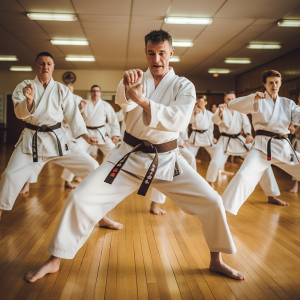 One of the advantages of our program is how the curriculum supports this functioning. As you progress, you will begin to build an online video library of yourself: a place where you can self-assess and identify issues that you want to improve. You not only have 24/7 access to your material, but you’ll also have the feedback and personalized assistance of your instructor. These tools are invaluable and will provide you with the resources to move forward with precision.
One of the advantages of our program is how the curriculum supports this functioning. As you progress, you will begin to build an online video library of yourself: a place where you can self-assess and identify issues that you want to improve. You not only have 24/7 access to your material, but you’ll also have the feedback and personalized assistance of your instructor. These tools are invaluable and will provide you with the resources to move forward with precision.
“According to the findings, the results suggest that 3 months of (karate) practice is related to a significant improvement of the cognitive functions in healthy older adults. Substantial improvements were observed in abilities of visual memory (delayed recall), alternative attention, episodic verbal memory (immediate recall), executive functions (logic-abstract reasoning and visual processing speed), and a decrease of subjective cognitive complaints by informants” (Journal of Physical Education, 2019).
If these results were found within a 3-month period, imagine what years of martial arts training can do for your brain!
Improved Reflexes
Within the realm of cognitive function, martial arts also exceed at improving reflexes/reaction time.
While reflexes are not considered cognitive as they are involuntary reactions to stimuli, there is a bit of an overlap when discussing our ability to focus and maintain attention to stimulus around us (cognitive) and our ability to react to it physically and with purpose.
“Age has perhaps the biggest influence on attentional control with a large amount of research discussing the decline in this function in older adults” (Johnstone & Mari-Beffa, 2018).
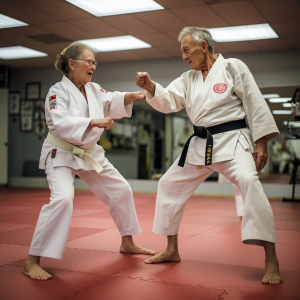 A study was performed to analyze this relationship specifically within martial artists vs those who do not practice. Perhaps one of the most interesting findings of this study was that martial artists had faster reaction times to unexpected stimulus. When compared to the non-martial artists, response time was significantly higher (Johnstone & Mari-Beffa, 2018). So, what does this mean?
A study was performed to analyze this relationship specifically within martial artists vs those who do not practice. Perhaps one of the most interesting findings of this study was that martial artists had faster reaction times to unexpected stimulus. When compared to the non-martial artists, response time was significantly higher (Johnstone & Mari-Beffa, 2018). So, what does this mean?
Through training, martial artists are prepared to react, regardless of the environment or challenging factors. This training provides the ability to respond quickly and efficiently to circumstances around them (which, as the data provides, is especially useful in unexpected situations!)
“In this study, the authors found that this greater excitability from the Karate group was evidenced in faster reaction times to targets appearing in variable intervals” (Johnstone & Mari-Beffa, 2018).
Through our drills and fundamentals, students learn the value of quick reflexes and rapid response. In addition, as students progress through our curriculum, we begin to focus more on elevated stress and multi-phase reflex training. This training focuses on adaptability: the ability to not only react physically to your environment, but to also mitigate the effects of stress and emotion that often accompany scenarios like this.
While reflex and reaction is the physical manifestation of recognition of stimulus, it is easy to see the partnership between cognitive function and the ability to physically react in kind. Through training and practice, martial artists can achieve a comprehensive synergy of physical, mental, and emotional equilibrium that will not only improve their technique but elevate things like balance, memory, and reflexes.
Martial arts are not just a physical discipline but a “whole body” approach to rejuvenating the mind and body, irrespective of age. It is abundantly clear that it offers far more than self-defense or physical benefits—they provide a gateway to a better and healthier way of getting older.
For older adults seeking to maintain and enhance their memory, reflexes, and overall well-being, martial arts are an invaluable partner. Through rigorous training, mental focus, and regular practice, anyone can experience the incredible transformation of their cognitive abilities and physical reflexes.
Martial arts are a path that allows individuals to tap into their inner strength and adaptability, hone their mental and emotional resilience, and remind them that growth is not confined to anything but their determination to seek it.
References
Johnstone, A. and Mari-Beffa, P. (2018). The Effects of Martial Arts Training on Attentional Networks. Frontiers in Psychology. Retrieved from https://www.frontiersin.org/articles/10.3389/fpsyg.2018.00080/full
Journal of Physical Education. (2019). Effects of Karate-Do Training in Older Adults Cognition: Randomized Control Trial. Retrieved from https://www.scielo.br/j/jpe/a/hH5KP4PbgVqZ75rJQGZJ6bp/#
WebMD. (2023). What Causes Balance Issues in Older Adults. Retrieved from https://www.webmd.com/healthy-aging/what-causes-balance-issues-in-older-adults
Yamasaki, T. (2023). Benefits of Judo Training for Brain Functions Related to Physical and Cognitive Performance in Older Adults. Encyclopedia, 3(3), 981–995. MDPI AG. Retrieved from http://dx.doi.org/10.3390/encyclopedia3030071
